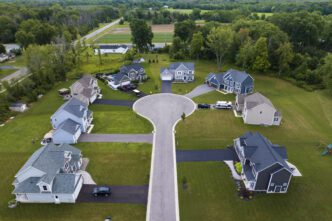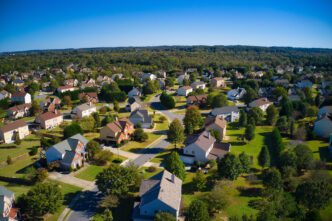Recent analysis reveals that older Americans, particularly those aged 65 and above, are increasingly purchasing homes in regions with significant climate risk.
A detailed study has highlighted a rising trend among older Americans in choosing to reside in areas vulnerable to extreme weather. Data shows that 37% of home purchases by individuals aged 65 and above occur in counties with high heat risk, in contrast to 32% by those under 35. This pattern extends to flood and fire risks, with 13.3% of seniors opting for flood-prone areas compared to 9.8% of younger buyers, and 3.7% choosing fire-risk zones versus 2.6% among the youth.
The majority of homes, approximately 96%, in counties where older adults hold the majority of mortgages, face intense heat risk. This figure starkly contrasts with the 59% in locations dominated by younger buyers. Similar disparities are noted for flood and fire risks, with significantly higher percentages in areas preferred by older buyers.
Such choices are influenced by the allure of America’s retirement hotspots—regions often exposed to intense sun and coastal conditions, such as Florida and Arizona. These areas are attractive due to their sunny climates and financial benefits like the absence of state taxes on retirement income in Florida. However, these advantages are challenged by escalating insurance fees and property taxes, which are rising in response to frequent natural calamities.
Younger Americans, in contrast, are typically drawn to urban employment hubs like Boston, Chicago, and Minneapolis, which tend to have lower climate risks. Yet, the shift towards remote work and the appeal of the Sun Belt cities has altered these trends to some extent.
Interestingly, climate change significantly influences housing choices among younger populations. A recent survey indicates that over half of millennials and Gen Z factor climate change into their living decisions, whereas only about 31% of baby boomers do the same. This discrepancy is likely due to the prolonged impact younger generations face from climate change and its prevalence in their social discussions.
Real estate experts observe that while retirees are aware of the climate risks, the scenic appeal, particularly waterfront views, often outweigh these concerns. Rafael Corrales, a real estate agent, shared insights that many buyers prioritize views over reduced flood risks, even when presented with alternatives inland that offer more economic benefits and lower insurance costs.
There were assumptions that older individuals might prefer riskier locations due to financial stability compared to younger people. Yet the findings revealed that this tendency persists across various income levels among older adults, not just the affluent.
The tendency of older Americans to invest in homes with high climate risk highlights a complex interplay of cultural, economic, and environmental factors. Although these regions offer attractive retirement benefits, the looming threat of climate change and its resultant costs may increasingly impact future real estate decisions.
Source: Redfin








